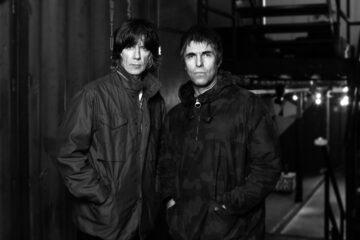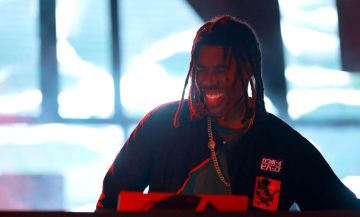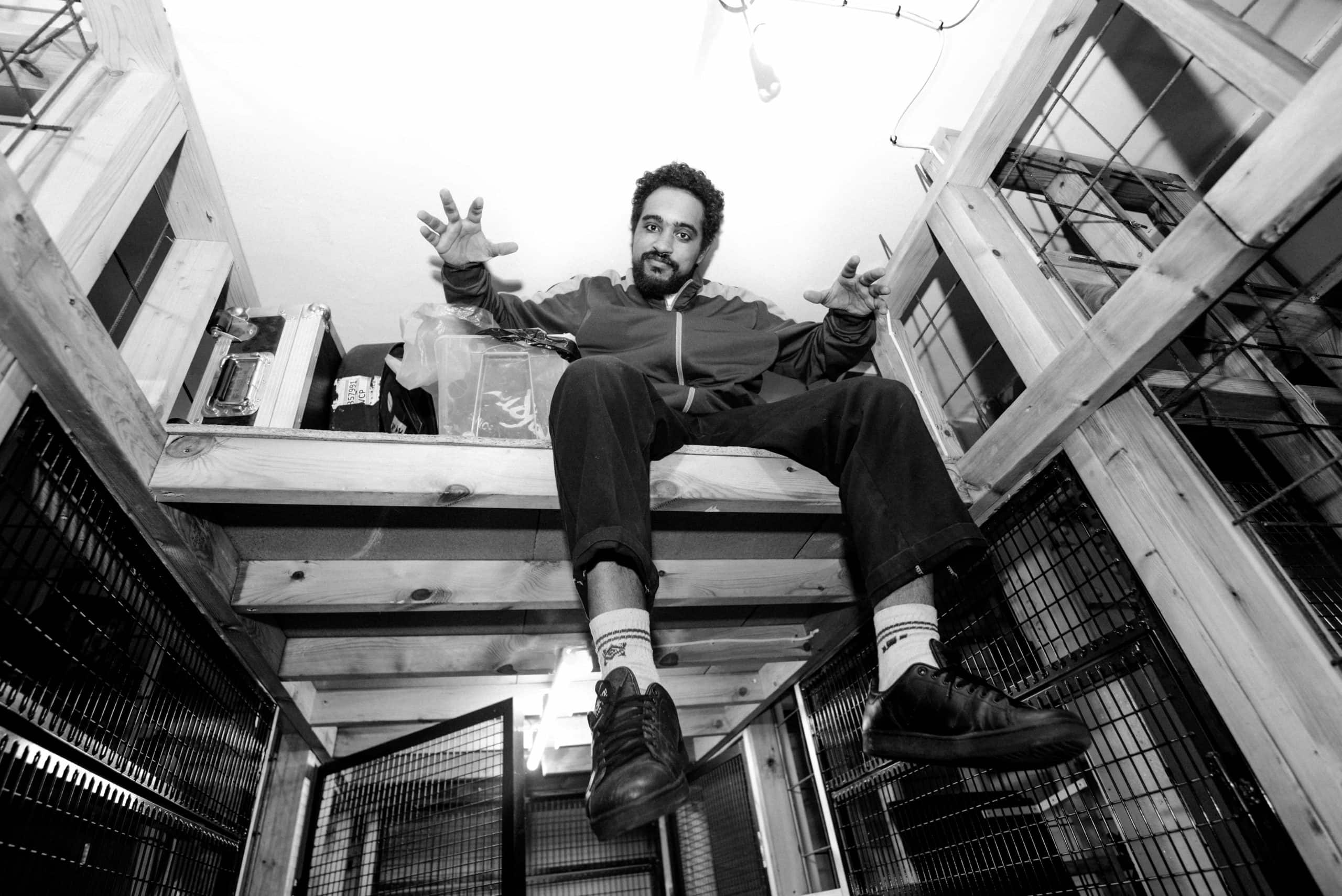
‘Tidy room, tidy mind,’ as the saying goes. In one of the multiple recording suites at Hither Green Studio, the mind of the multi-instrumentalist is on full display. Instruments, wires and keys scatter the floors and protrude from the walls. This array of equipment is the source of Wu-Lu’s creation – an exhibition of his creative mind.
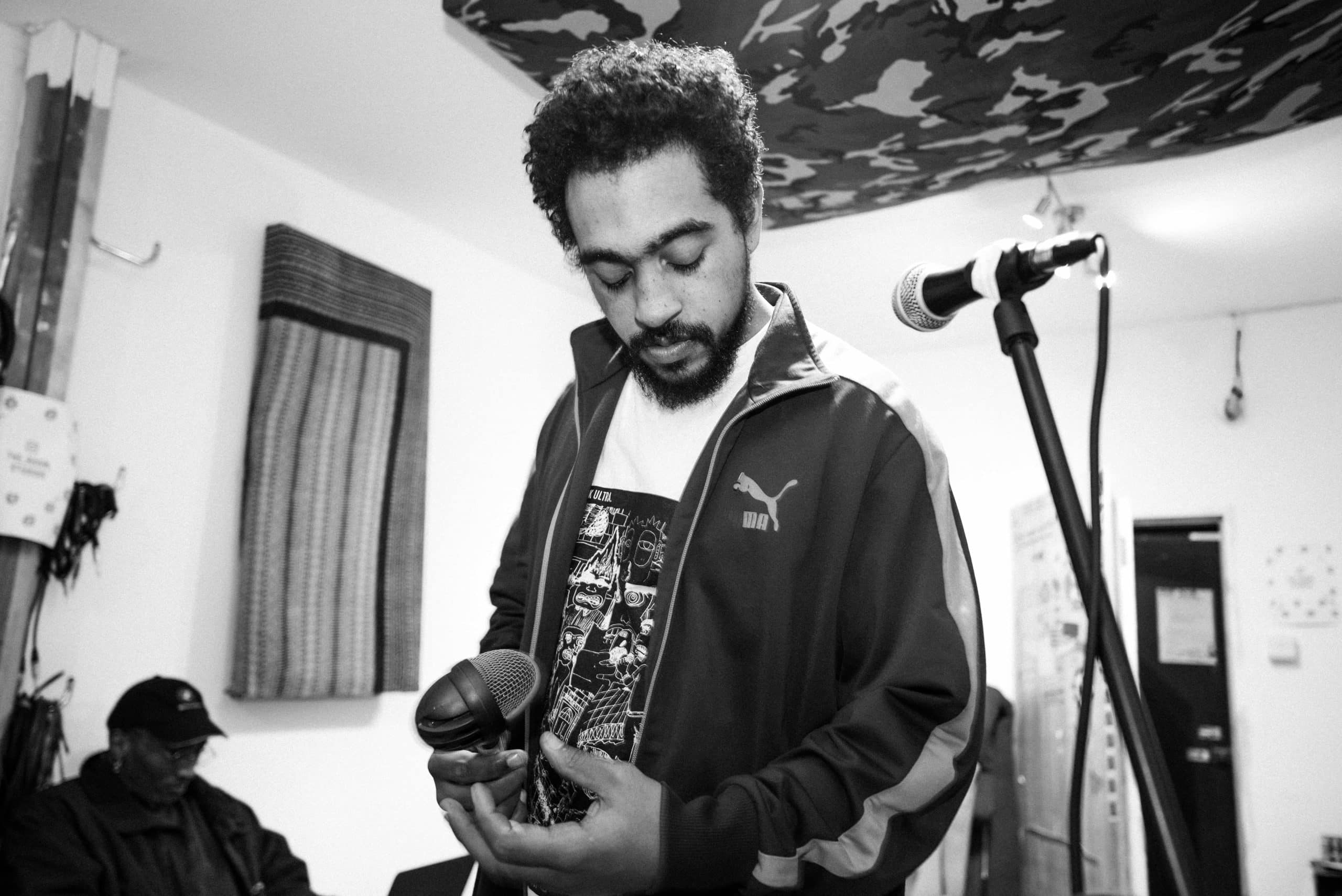
Wu-Lu, born Miles Romans-Hopcraft, is part of a wave of new musicians currently fuelled by these environments – their minds pulsing with beats, synths and the overwhelming freedom of doing your own thing. A notable characteristic of Miles, however, is his confident straddling between different musical genres. Rather than limiting himself to a single sound, he’s able to play many in a unified manner. Two weeks prior to our interview, this was in full force at Hoxton Hall, where he was supporting Sorry, his “favourite band right now” (though his performance was heartfelt enough to have been the headline).
Hither Green Studios itself is a particularly special environment. Set up four years ago by Wu-Lu and his friend and mentor, Giles “Kwake Bass” Kwake, this “whole little business venture” curls round the corner of Lanier Road and Hither Green Lane, fastening the two in a spirit of cooperation. It signifies the pair’s pursuit, as Miles explains, “to try and house the ongoing community of musicians currently in South London. I grew up in Brixton, Giles grew up in Brockley. Everyone’s local. Moses [Boyd] lives across the road, Joe [Armon-Jones] recently moved here.”
“We’re all just tryna win the same race. A good friend of mine said: when people see so-and-so on tour with so-and-so, a lot of the time it’s just people knowing each other from being around music and around each other. And it doesn’t all reside in South London – this jazz thing resides in South London, but I feel things are getting a lot more post-punky, which I’m loving.”
This jazz thing resides in South London, but I feel things are getting a lot more post-punky, which I’m loving
For Miles, a plethora of musical sounds was the norm throughout his childhood. His father, Robin Hopcraft, was one of the founding members of the band Soothsayers, for whom he continues to be trumpeter and vocalist to this day. As a result, Miles spent his youth sonically acclimatised to the rhythms of jazz, funk, afrobeat and more. “My brother and I used to be in splitter bands and s**t like that from early,” he recalls. “I’d play trumpet and my brother would play clarinet.”
Array“We used to just tour in my dad’s little ska band, back in the day. He took us out of school – just for a quick little one. I actually grew up thinking that everyone did that. I thought that was a normal thing. People at school would ask me like, ‘Ah, wagwan?’ and I’d be like, ‘Yeah, we went to Spain with my dad and did X, Y, Z,’ and they wouldn’t relate.”
Immersed in this musical exploration from such an early age, it wouldn’t take long for Miles to embrace the technological advancements available to him and fall in love with turntablism, inspired in particular by “that film Scratch – this nineties film back in the day with DJ Shadow. It’s a documentary about how they were using turntables as instruments.”
We used to just tour in my dad’s little ska band, back in the day – I actually grew up thinking that everyone did that
“DJ Shadow was going round to record shops, romanticising the whole idea of going to different stores, digging from a break, finding the best bit, extending the break, and then – I didn’t even clock when I was younger – he was talking about making beats; about sampling beats and putting them into tracks.”
“At the time my mum was working at Youth Music [a national charity investing in music-making projects] and she would be sent boxes of records. She would grab whatever she could bring home for me. So I got really into DJing throughout my teenage years, but kind of rejected the bass for quite a while.”
Array“Then I started making beats and taught myself ‘cause I wanted to make Drum and Bass. After a few years, my friend [the DJ and producer] Hector Plimmer was like, ‘Yo, why don’t you ever play bass on your music?’ I saw my brother sing in a band as well; I thought, ‘I can f***ing do that.’ So I started getting into it, started getting into writing, and then the sort of trip-hop idea, DJ Shadow sort of chopping up s**t matched with playing over it. That started to become a big thing in my head.”
This ebbing, flowing musical education has culminated in the duality of Wu-Lu’s sound. In musical terms, it’s the marriage of lo-fi, hip-hop beats – “Flying Lotus and J Dilla type s**t” – with new-wave grunge. More poetically, it’s the contrast between light and shade, heavy and soft, laid-back and aggressive. Something in Miles’s aura emits a similar balance; with big, beefy arms he commands a powerful presence, whilst his soothing voice and free-flowing mane of hair provide the lightness of touch.
This ebbing, flowing musical education has culminated in the duality of Wu-Lu’s sound. In musical terms, it’s the marriage of lo-fi, hip-hop beats with new-wave grunge.
His most recent single, ‘Legend’, featuring Ego Ella May and Lex Amor, encapsulates this to a tee. Halfway through, its ethereal, sensuous sound is shattered by a deep, raucous energy. So too, it seems, does the entire musical output Wu-Lu has so far produced. With a carefully curated production line, the lo-fi sound of his first album, Ginga, has progressively made way for the more intense side of his playing. A move, Miles adds, designed to “drip-feed what I’m in to, so people can understand the journey”.
With this desire to not limit himself and “say ‘I’m a hip-hop producer’ or ‘I’m this’ or ‘I’m that’”, but instead trying to keep his musical output “as malleable as possible”, it makes sense for Miles’s name to signify ultimate malleability.
“Wu-Lu” is Miles’s take on the Amharic word for water: “wu-ha”. To avoid having himself confused with a classic Rhymes track, Miles made the minor but necessary adjustment. “Water has no shape – it can just get into any nook and cranny; you can put it in anything, anything with a shape or a solid structure, and it will fit in.”
Arguably another means by which Miles learnt to “fit in”, in the sense of both developing and cultivating his sense of compassion and being a helping hand within his community, was his time spent working at local youth centres. One centre he worked at in particular, Raw Material, is dedicated to transforming the challenging lives of young people through arts. “I had sort of free range of the studio there and making my own courses and it was really open – a really good thing for me to do, being really into music.”
“I talk about it a lot when I do shows, that it’s always important to be aware of what the youngers are on. I have to. It’s definitely touched on my writing and given me perspective of how we are so lucky just being able to make music – so lucky. And for me to even grow up and start thinking “this is what normal people do” is incredible; this is not normal for everyone, it just bare isn’t.”
“If you’re in the position where you’ve got people’s attention, you’re able to give people a picture of where your head’s at, and give them something to think about. I guess that’s what I’ve got from doing music and doing youth work: more than preaching something to someone and saying ‘this is what you’ve got to do’, it’s more about feeling.”
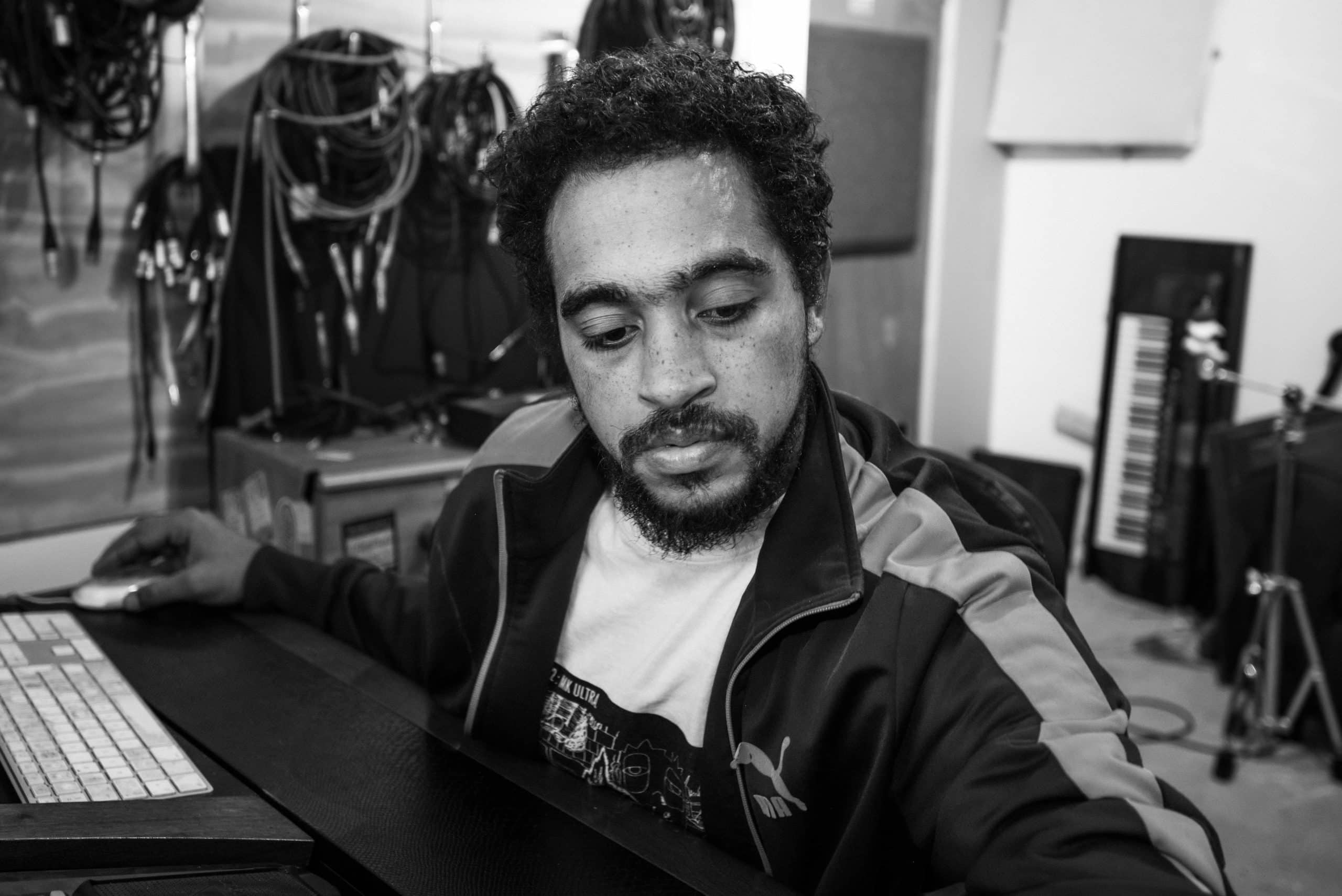
“If you evoke an emotion, an emotion will lead to a thought and that same emotion might pop up in situations where you don’t even know – evoking a different way of thinking without just saying ‘this is how life should be’.”
And without saying ‘how life should be’, life seems to be progressing well for the musicians of Wu-Lu’s ilk. For now, Wu-Lu’s fixation is on making Hither Green Studio “somewhere where I can survive as well as create. Whatever comes out of that is what I put into the music.”
“I don’t always come here and write something. Sometimes I might just come here and hang out all day, just read, watch a film or chat to people. And then they’ll be times when I’m in a mode; when I came in earlier, I was just like ‘yeah, I’m gonna f***ing go for one’.”
To prevent the risk of draining this mode – a tragedy for us all, given Miles’s musical talents – there was a need to wrap up the interview. Hopefully, as a result, though still contained by his free-flowing manner, this will yield yet another musical gift. Wu-Lu will be making more than a mere splash in 2020.


